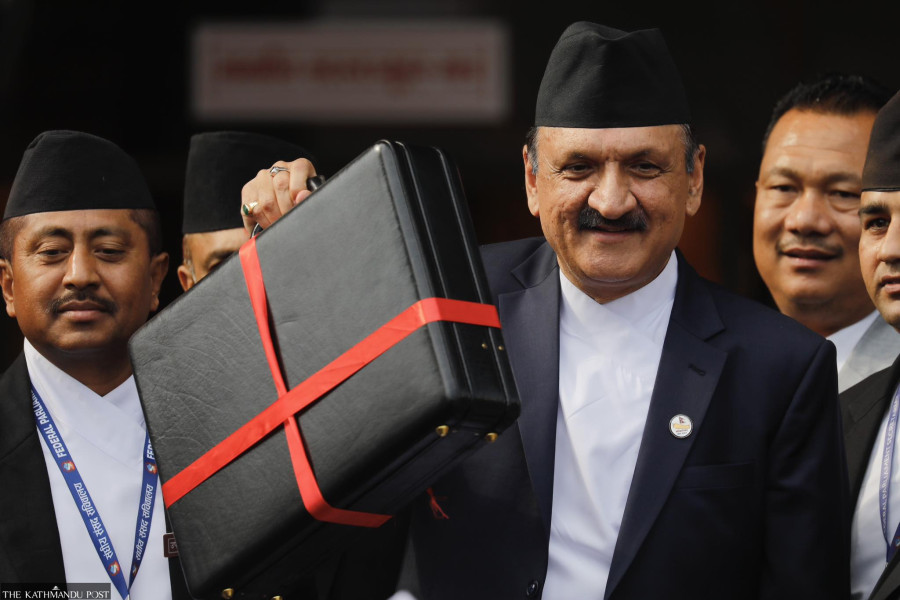National
Nearly Rs11 billion allocated to implement MCC projects
Government expects to spend most of the money on transmission lines and acquiring land for pylons.
Prithvi Man Shrestha
Momentum is building for the implementation of projects under the Millennium Challenge Corporation-Compact Programme ahead of its planned entry into force for August.
It has initiated the process of acquiring land and hiring contractors and a consultant for the transmission line and substations, which could be done only after the ratification of the MCC-Compact by the House of Representatives in February last year.
With a $500 million US grant and Nepal’s $197 million matching fund including the recently added $67 million, a 315-km high capacity transmission line will be built and a section of the East-West Highway improved.
The political hurdles seen in the run-up to the compact’s parliamentary ratification now gone and preparatory works underway, the government expects to spend a significant chunk of the national budget to implement MCC projects in the next fiscal year 2023-24.
The government has allocated Rs10.84 billion for the Millennium Challenge Account-Nepal (MCA-Nepal), the body responsible for implementing the MCC projects, for the next fiscal year beginning in mid-July.
Rs9.27 billion had been set aside for the MCA-Nepal in the current fiscal year 2022-23, but only around Rs1.54 billion is expected to be spent by the end of it, according to the MCA-Nepal. Earlier, the spending was poorer still, with just Rs573 million spent in fiscal 2021-22.
However, MCA-Nepal officials say that as construction could start in the next fiscal year, they expect to spend more—particularly for acquiring lands and distributing mobilisation advance to contractors.
“Most of the land that falls along the alignment of the transmission line will be acquired in fiscal 2023-24,” said Khadga Bahadur Bisht, executive director of MCA-Nepal. “Once the contract is signed with the contractors, we need to pay them mobilisation advance for which a sizable amount will be spent.”
The MCA-Nepal plans to award the contracts right after the compact’s entry into force in August. “It may take six-seven months for the contractors to start work after signing a contract with MCA-Nepal.”
As the contractors will be hired under design and build modality, once chosen, the contractors will be responsible for preparing design and start construction, according to Bisht.
The MCA-Nepal said the contractor-hiring process is underway after six companies—all from India—participated in a bid. The selection of contractors will be made after technical and financial evaluation of their bids, the MCA-Nepal said.
Then, the MCA-Nepal will sign contracts with select contractors, who will implement three separate packages of the proposed 315-km transmission line. The three packages include are Lapsephedi-Ratmate-New Hetauda 400kV D/C transmission line, Ratmate-New Damauli 400kV D/C transmission line, New Damauli-New Butwal 400kV D/C transmission line (Base), and New Butwal -Nepal/India Border 400kV D/C transmission line.
Of the total budget allocated for MCA-Nepal, as much as Rs5.36 billion has been set aside for building infrastructure for the transmission line, while Rs2 billion will be spent to acquire land for pylons. Likewise, Rs1.04 billion has been allocated for road and bridge construction and Rs1.28 billion for consultancy services, according to the detailed estimate of expenditure also known as “Budget Red Book” prepared by the Finance Ministry.
Despite expectation of better spending in the next fiscal year, MCA-Nepal is aware of the challenges particularly related to acquiring land for the transmission line project.
“Project-affected people are worried that the compensation may not be satisfactory,” MCA-Nepal said in a written response to the Post. “It will not be a matter of surprise if MCA-Nepal would have to face challenges in the process of land acquisition based on the experiences of other similar projects.”
However, it said it hopes the process would move ahead smoothly just like at Ratmate (substation) where they implemented the ‘unique’ Rehabilitation Action Plan and Livelihood Restoration Program for the project-affected people.
MCA-Nepal, however, is expecting a favourable political environment in the days ahead despite the massive street protests in the run-up to the ratification of the MCC compact in February 2022.
“After the parliamentary ratification, the political environment has been adequately positive towards the programme,” the MCA-Nepal said. “The leading political parties in the government and opposition are affirmative to move on the programme, and the government line agencies are cooperating constructively.”




 20.12°C Kathmandu
20.12°C Kathmandu















